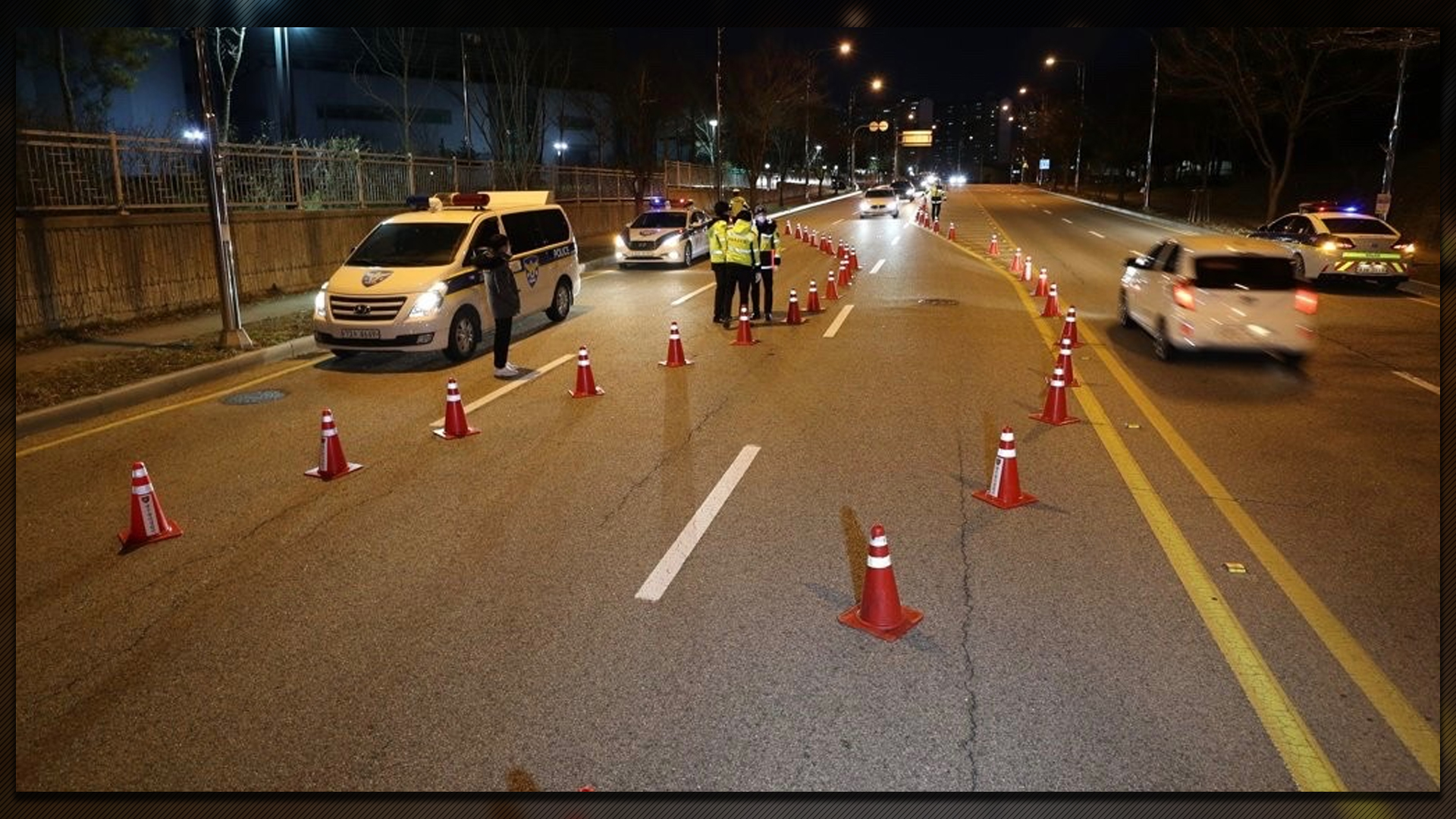

Driving drunk endangers the lives of everyone on the road, but add the deadly coronavirus outbreak into the mix, and the police who pull over intoxicated offenders become susceptible to catching the potentially fatal ailment. Police in South Korea have come up with a way to simultaneously fight both, and it’s a lot simpler than you might think.
Their answer? A tiny autocross-like track comprised of traffic cones on a wide stretch of road.
Rather than force drivers to open their window and talk to authorities as they drive by, risking exposure, police decide to test a driver’s ability to navigate through a simple arrangement of cones. Traffic officers arrange the pylons into the shape of an “S” slowly narrowing the available space from three lanes, to two lanes, to just a single lane at the end of the course. Drivers who fail to properly mitigate the path are pulled over and then further evaluated on their potential impairment.
While you might raise an eyebrow at the method, a local news station reporting on the matter shows just how effective it can be. One driver failed to properly navigate the obstacle course, was stopped by authorities, and can be seen being escorted to a van where police administered a breathalyzer test.
South Korean police aren’t the only officials who worry that on-road DUI screening could lead to an increased number of coronavirus infections. Reuters reports that officers in Poland expressed similar concerns, especially given the country’s typically elevated number of impaired drivers.
Thankfully, this technique not only reduces the number of people that police come in contact with, but it also helps to reduce the potential exposure of other innocent civilians. A recent finding by the National Institutes of Health indicates that COVID-19 can be stable in the air for hours and up to three days on various surface materials, meaning that any citizen or police officer who enters the same van potentially increases their risk of exposure.
While we haven’t found any similar virus-inspired examples in the U.S., we have noticed that some of our busiest highways are becoming less congested due to increased telecommuting. Either way, this is your hourly reminder to stay safe and wash your hands.
Got a tip? Send us a note: tips@thedrive.com